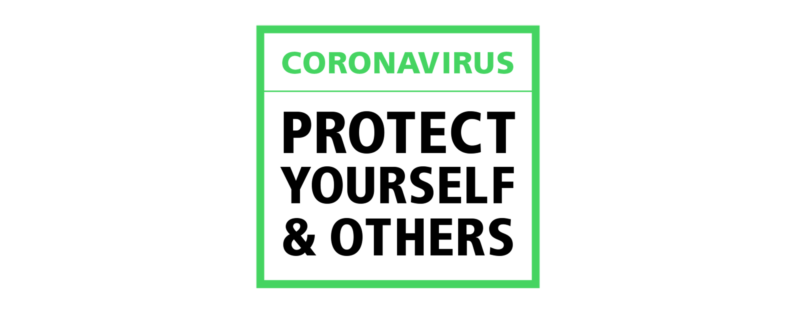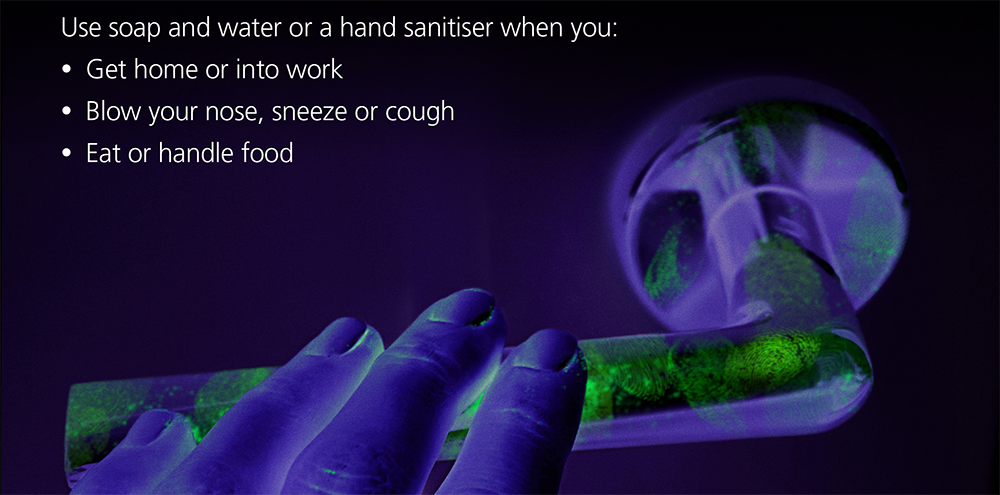Beyond Touch Offers Free AI Workshop in January
Lincolnshire businesses are being invited to turn “Blue Monday” into a fresh start for 2026 with a free, practical AI wor...
Read MorePLEASE NOTE THIS PAGE WAS CREATED ON 4TH MARCH – SOME OF THE ADVICE MAY BE OUTDATED. Visit our Coronavirus Advice Hub for all the latest information here.
We are sure you have all been keeping up with the Coronavirus (COVID-19) as it escalates and we recognise that businesses will have concerns and as a Chamber we want to provide businesses with advice and guidance in order to reduce the risks of COVID-19 to you and your business.
We are advising businesses that they keep up-to-date daily and follow the official guidance, delivered by the following organisations:
– Foreign & Commonwealth Office travel advice
The guidance here will assist employers and businesses in providing advice to their staff on:
– the novel coronavirus, COVID-19
– how to help prevent spread of all respiratory infections including COVID-19
– what to do if someone suspected or confirmed to have COVID-19 has been in business settings
– what advice to give to individuals who have travelled to specific areas
– actions to take if staff come into contact with someone who is self-isolating or is a possible or confirmed case of COVID-1

General Advice
It’s good practice for employers to:
– keep everyone updated on actions being taken to reduce risks of exposure in the workplace
– make sure everyone’s contact numbers and emergency contact details are up to date
– make sure managers know how to spot symptoms of coronavirus and are clear on any relevant processes, for example sickness reporting and sick pay, and procedures in case someone in the workplace develops the virus
– make sure there are clean places to wash hands with hot water and soap, and encourage everyone to wash their hands regularly
– provide hand sanitiser and tissues for staff, and encourage them to use them
– consider if protective face masks might help for people working in particularly vulnerable situations
– consider if any travel planned to affected areas is essential
Be Prepared
Businesses are increasingly managing the economic impacts of Coronavirus, from shipping and travel restrictions to increased freight costs and supply chain disruption.
Companies should consider the potential impact that the Coronavirus could have on their operations and act now to mitigate any risks.
As a Chamber we will continue to monitor its effects and are ensuring that firms are aware of official advice and guidance.
– Keep up-to-date with Government and public health advice: Employers should keep up to date with the situation as it develops and refer employees who are concerned about infection to official and expert medical sources such as UKand the National Health Service.
– Develop a contingency plan: Every organisation will need to assess its own level of exposure to business disruption caused by the virus. If it has a site, conducts business or has supply chains in China or an affected region, there will be a direct impact to the company’s day-to-day operations. The plan will need to take account of current and potential impacts and manage the specific business risks associated with the disruption, including service delivery and workforce issues. Communicate the plan to key teams and individuals across the business.

Frequently Asked Questions
1. Are employees entitled to sick pay if they are off due to the coronavirus?
The workplace’s usual sick leave and pay entitlements apply if someone has coronavirus.
Employees should let their employer know as soon as possible if they’re not able to go to work.
2. Do employers have to pay sick pay if someone has to go into self-isolation?
The government has made clear that if NHS 111 or a doctor advises an employee or worker to self-isolate, they’re entitled to statutory sick pay. If the employer offers contractual sick pay, it’s good practice to provide this.
The employer might need to be flexible if they require evidence from the employee or worker. For example, someone might not be able to provide a sick note (‘fit note’) if they’ve been told to self-isolate for 14 days.
The employee must tell their employer as soon as possible if they cannot work. It’s helpful to let the employer know the reason and how long they are likely to be off for.
Find out more about:
3. Are employees entitled to usual pay if an employer has told them not to come into work even if the employee is not sick?
If an employee is not sick but their employer tells them not to come to work, they should get their usual pay. For example, if someone has returned from China or another affected area and their employer asks them not to come in.
4. Is an employee entitled to pay if they need time off work to look after someone?
Employees are entitled to time off work to help someone who depends on them (a ‘dependant’) in an unexpected event or emergency. This would apply to situations to do with coronavirus. For example:
– if they have children they need to look after or arrange childcare for because their school has closed
– to help their child or another dependant if they’re sick, or need to go into isolation or hospital
There’s no statutory right to pay for this time off, but some employers might offer pay depending on the contract or workplace policy.
The amount of time off an employee takes to look after someone must be reasonable for the situation. For example, they might take 2 days off to start with, and if more time is needed, they can book holiday.
Find out more about:
– sick pay
5. What happens if employees do not want to go to work?
Some people might feel they do not want to go to work if they’re afraid of catching coronavirus.
An employer should listen to any concerns staff may have.
If there are genuine concerns, the employer must try to resolve them to protect the health and safety of their staff. For example, if possible, the employer could offer flexible working.
If an employee still does not want to go in, they may be able to arrange with their employer to take the time off as holiday or unpaid leave. The employer does not have to agree to this.
If an employee refuses to attend work, it could result in disciplinary action.
6. What should we do if someone becomes unwell at work?
If someone becomes unwell in the workplace and has recently come back from an area affected by coronavirus, they should:
– get at least 2 metres (7 feet) away from other people
– go to a room or area behind a closed door, such as a sick bay or staff office
– avoid touching anything
– cough or sneeze into a tissue and put it in a bin, or if they do not have tissues, cough and sneeze into the crook of their elbow
– use a separate bathroom from others, if possible
The unwell person should use their own mobile phone to call either:
– 111, for NHS advice
– 999, if they’re seriously ill or injured or their life is at risk
They should tell the operator:
– their symptoms
– which country they’ve returned from in the last 14 days
7. What if someone with coronavirus comes to work?
If someone with coronavirus comes to work, the workplace does not necessarily have to close.
The local Public Health England (PHE) health protection team will get in contact with the employer to:
– discuss the case
– identify people who have been in contact with the affected person
– carry out a risk assessment
– advise on any actions or precautions to take
8. What happens if the employer needs to close the workplace?
Currently it’s very unlikely that an employer will need to close their workplace.
But they should still plan in case they need to close temporarily. For example, making sure staff have a way to communicate with the employer and other people they work with.
Where work can be done at home, the employer could:
– ask staff who have work laptops or mobile phones to take them home so they can carry on working
– arrange paperwork tasks that can be done at home for staff who do not work on computers
Find out more about homeworking.
In some situations, an employer might need to close down their business for a short time. Unless it says in the contract or is agreed otherwise, they still need to pay their employees for this time.
If the employer thinks they’ll need to do this, it’s important to talk with staff as early as possible and throughout the closure.
Visit our full Coronavirus Advice Hub.
To share your thoughts and experiences, please contact us:
marketing@lincs-chamber.co.uk
01522 523333
Lincolnshire businesses are being invited to turn “Blue Monday” into a fresh start for 2026 with a free, practical AI wor...
Read MoreAs we approach the end of 2025, I find myself reflecting with genuine pride on what has been a landmark year for Tradeglaze. ...
Read MoreLog into your account
If you have difficulty logging in, please reset your password. If you continue to experience issues, please email marketing@lincs-chamber.co.uk
